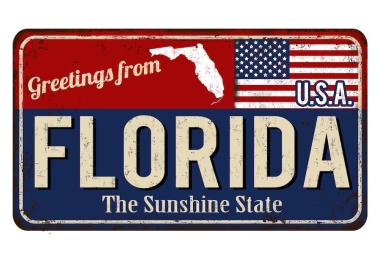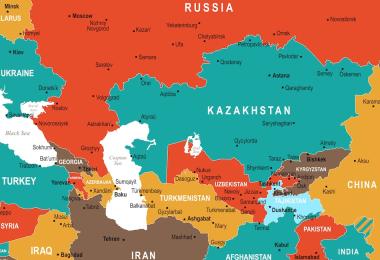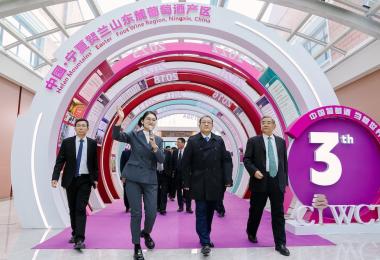It’s fitting that Simon Berry, the chairman of this august company, should have sent his staff on a training course at RADA, the equally-august Royal Academy of Dramatic Arts, where Berry sits on the board. There is a strong sense of theatre in many British wine companies, and Berry Bros and Rudd is no exception.
The shop at No 3 St James’s Street, Piccadilly, which Berry’s has occupied since 1698, has a Dickensian charm that would not be out of place on a film set. The highly-polished floor, worn and burnished with the feet of three and a half centuries, creaks like old ship timbers, and a warm smell wafts up from the cellars. The wine world loves Berry’s, because of its history, because in its upstairs rooms it throws excellent dinners with fabulous wines. When Steven Spurrier ran a thirtieth-anniversary edition of the Paris Tasting, Berry’s naturally hosted it.
Behind the scenes
St James’s Street is the shop front, as it were. The real business goes on in Basingstoke, 50 miles away, in an unlovely warehouse in a utilitarian business park. This is where Simon Berry, seventh-generation chairman, works from a featureless office looking out onto a car park. It’s almost indecently modest. But such is the potency of this extraordinary company, that even in Basingstoke, history seeps through the walls. It’s helped by the lithographs of the BBR founding fathers on the walls; in conversation Berry constantly refers to them.
But great age, in a company, is no guarantee of longevity. BBR would not be where it is today were it not run by businessmen. It would not be the consistent winner of prestigious awards, and it certainly wouldn’t be turning over £150m ($230m) a year. There’s little fusty or old fashioned about BBR. It was the first wine merchant into Heathrow, running four shops in four terminals before axing them all in 2006. It launched its first website (under the auspices of Martin Brown, who went on to start Wine Searcher) in 1994, before BBC Online and Amazon. BBR was an early adopter of the online trading platform model, and BBX, launched in 2010, has sold £60m of wine in 75,000 transactions. Its education division ran 370 events last year, while the wholesale division grew 9%. Berry was responsible for many of these developments, particularly the groundbreaking website, and they all took place on his watch: he has been with the company in various directorial roles for 30 years, the last 10 as chairman.
BBR are also publishers, selling 10,000 copies of Jasper Morris MW’s Burgundy (they came out with an iPad version while many publishers were still working out what to do with the new technology). And they are brewers, owning 40% of Anchor Brewing in San Francisco. There have been confident and far-sighted acquisitions. In 2003 they snapped up the importer Fields Morris & Verdin (netting Vega Sicilia, Au Bon Climat and Ridge at the same time); four years later came Mistral Wines (Château de Beaucastel and Perrin et Fils, among others); in 2012 they bought Bordeaux importer and negociant Richards Walford. There are two royal warrants; Edward VII was a loyal customer – the liquor The King’s Ginger was mixed especially for him in 1903. There are offices in Hong Kong, Singapore and Japan. Berry Bros and Rudd would seem to be as solid as a rock.
Which made the rash of headlines that surfaced two years ago all the more shocking.
High drama
“Berry Bros posts £7.3m loss,” said the Daily Telegraph in October 2013. A year later, the Grocer reported BBR was ‘upbeat’ despite its second pre-tax loss, this time of £5.5m. Then there was local difficulty in China that has resulted in an ongoing lawsuit. BBR is not commenting on any of the court cases it is or has been involved in, but the reports in the Hong Kong press make lurid reading. The Apple Daily – Hong Kong’s biggest-selling newspaper, akin to the UK’s Daily Mail – for example, reported that St James’s street had been mortgaged, a rumour Berry dismisses with a wave of his hand. Then there are rumours of arrests and misappropriation of databases. The claustrophobic Hong Kong wine world likes to gossip and the idea that Berry’s was “in trouble” took hold.
“People I knew who were BBR clients were coming to me and asking me if it was true, were their wines safe?” one Hong Kong merchant told Meiningers. BBR stores millions of pounds of wine for its customers. Its enormous warehouses (capacity 9m bottles) are stacked floor to ceiling with palettes of the finest wines of the last 200 years, from Haut-Brion to Screaming Eagle. Two-thirds of BBR clients keep reserve stock here. To doubt such a company is almost an offence against the natural order.
The basic facts of the case are that BBR is involved in litigation with its Chinese collaborator of 14 years, Chinaplus Wines, owned by the businessman KK Mui. Chinaplus ran the Hong Kong division of BBR under a ‘marketing and distribution agreement’, with veteran Bordeaux buyer Simon Staples in charge and KK Mui as chairman. The dispute, about the exact nature of the agreement, is dragging on and could last another few years yet, Berry says. “The Chinese are good at prolonging these things.”
But the headlines and the fog of rumour in Hong Kong can’t have been helpful. “What went wrong was that there were some fundamental differences in attitude and expectation. They were cultural differences on both sides,” is all the diplomatic Berry will say.
All this is happening at the end of a five-year development plan that has shaken things up across the BBR empire. The programme includes an extensive re-shuffle of senior staff both in London and Asia, notably with Hugh Sturges leaving after 12 years as managing director and Simon Staples moving from Hong Kong to Japan. A new warehouse was built in 2012 in Basingstoke and St James’s St is being extended. Anchor Brewing, the company being bought for its distribution channels, is to sell BBR’s “core boutique spirits” like No3 Gin and Pink Pigeon rum, and to tap into the vibrant craft beer market.
The plan was kicked off in 2010 with the sale of Cutty Sark whisky to the Edrington Group, swapping it for Edrington’s Glenrothes whisky brand. On the surface it looked like an odd deal: Cutty Sark sales in 2010 were £60m, generating profit of £5m, while Glenrothes sales were £3m. The rationale behind the sale, Berry says, was that Cutty Sark was up against brands such as Pernod Ricard’s Ballantine’s and Diageo’s J&B, and Berry didn’t want to compete in that arena. “Glenrothes gave us the ability to do something pretty good and niche and have a head start.”
Since the purchase of Glenrothes, its sales have tripled to £9m a year. But just as Cutty Sark was sold, the bottom dropped out of the Bordeaux market. BBR sold £60m of Bordeaux 2010 en primeur, but the 2011 vintage onwards brought in a fraction of that. It must have been quite a hit to the bottom line. How are they filling the hole?
“It only leaves a hole if you don’t think of en primeur as being a windfall,” Berry explains. BBR never relied on en primeur: the huge sales of 2009 and 2010 were “the icing on the cake”, he says.
But, he also admits, “we didn’t think there would be three years when en primeur would be non-existent.” The last three brought in such miserable returns, it has pushed back forecasts: the company now expects to reach profitability in 2017. “We are feeling very optimistic because we are very aware of the brand. And getting more focussed on who we want to be.”
Berry points to one of his ancestors on the wall. “That man there, Charles Walter Berry, said the job of the wine merchant is to be the closest link between the people who make the wine and the people who drink it. We still believe that our job is to go out and find wine.”
The finds
There are 4,000 lines in the wine division. Bordeaux, Rhône, Burgundy and Italy are deeply and widely represented, along with offerings from Lebanon (Château Musar), California (Dominus, Colgin, Ridge and their peers). The Spanish list is excitingly dense, and there are also wines from Jura, China, Bulgaria and Moldova.
BBR keeps eight Masters of Wine on the staff, including Martin Hudson, apparently known as “Captain Kirk”, whose brief is to boldly explore the final frontier of wine – his are the Eastern European offerings. This again is quite in keeping with tradition; BBR was the first to permanently stock a mainland Chinese wine, the 2008 Chateau Changyu Moser XV from Ningxia. They also nurture talent: Alvaro Palacios, Benjamin Leroux and Giovanni Rosso, among others, have all been championed by the firm.
“Tracking the wine regions of the future is a minor but crucial part of increasing customer choice,” Berry says. But aren’t they spreading themselves thin already – Bulgarian wines can’t bring in much? “Are we making money on Bulgaria? Probably not, but that’s the advantage of being a family company. We don’t have shareholders to answer to and we don’t have to go about saying the only thing we have to do is make money.”
But there is tacit acknowledgement that a new focus has to be found. When asked what that might be, Berry lists the strengths of the company: “Education is incredibly strong; gifting – the same bottle of wine looks very different in a Tesco’s bag than a BBR bag; wine and spirits; wholesale and retail; the website: brokerage.”
The longer the list, the more difficult it is to pin down the USP. Perhaps it’s Berry himself, whose relentless optimism and old-fashioned charm permeates the company. He likes to take the long view, which you can do if you’re not answerable to shareholders. The Japan office, for example: “There are people who say you can’t make money in Japan, but it’s an incredibly sophisticated market. It sells more Burgundy than Bordeaux for example. As a family business we have the luxury of saying, ‘this is a market that takes a long time. How much do we have to change to make it work?’ There is a fit there somewhere.”
He could well go by the motto, “We shall find the key.” BBR can seem over-ambitious – building four outposts in Heathrow for example – but it’s dynamic, and interesting, full of surprises. And drama of course: behind the scenes at St James’s St there’s some pretty serious activity going on.








